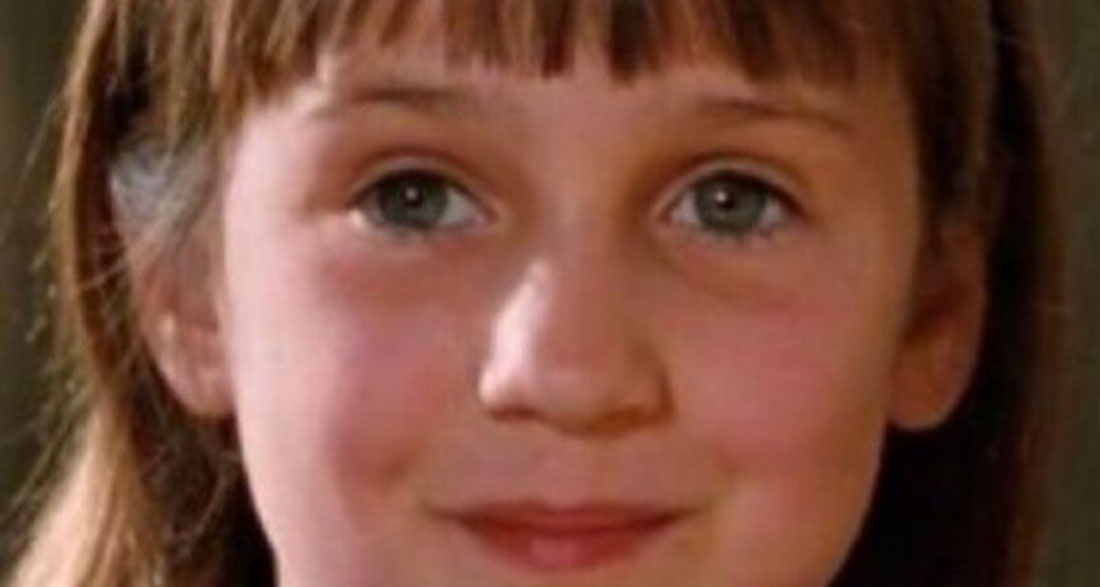The world first fell in love with Mara Wilson in the early 1990s. She was the adorable child star everyone remembered from family classics like Miracle on 34th Street and Mrs. Doubtfire. Her bright smile and natural talent made her a rising star.
Mara, who turned 37 on July 24, seemed like she was on the path to even bigger things. But as she got older, something changed. She wasn’t seen as the “cute” little girl anymore, and Hollywood slowly pushed her aside.
“If you’re not cute anymore, if you’re not beautiful, then you are worthless,” Mara shared. “Hollywood was burned out on me.”
So, what really happened to Mara Wilson? Let’s take a look at her journey.
At just five years old, Mara played Robin Williams’ youngest daughter in Mrs. Doubtfire, the hit 1993 movie that became one of the biggest comedies in Hollywood history. Her sweet, innocent portrayal won over millions of hearts. But even before that, she had already been appearing in commercials.
The siblings from ‘MRS DOUBTFIRE’ have reunited over 30 years after the film’s release. pic.twitter.com/igfg92AlN9
— DiscussingFilm (@DiscussingFilm) May 2, 2024
“My parents grounded me, even though they were proud of me,” Mara remembered. “If I ever said something like, ‘I’m the greatest!’ my mom would remind me, ‘You’re just an actor. You’re just a kid.’”
After her breakout in Mrs. Doubtfire, Mara took on another iconic role as Susan Walker in 1994’s Miracle on 34th Street, the same character played by Natalie Wood in the original 1947 version. Mara recalled her audition in an essay she wrote for The Guardian: “I read my lines for the production team and told them I didn’t believe in Santa Claus.
But I did believe in the tooth fairy and had named mine after Sally Field,” she wrote, referring to the Oscar-winning actress who played her mother in Mrs. Doubtfire.
However, behind the scenes, Mara wasn’t as happy as her on-screen characters. In 1996, she starred in Matilda, playing the magical young girl in a beloved movie adaptation of the Roald Dahl book. She acted alongside Danny DeVito and his wife, Rhea Perlman. That same year, though, her mother Suzie passed away after a battle with breast cancer, and Mara’s world changed.
“I wasn’t really sure who I was anymore,” Mara said. “It felt like I was two different people—before and after my mom died. She was always there, this huge presence in my life. It was overwhelming.” She continued, “After she passed, I just wanted to be a regular kid, but it felt impossible.”
As Mara’s fame grew, so did her feelings of exhaustion and sadness. “I was the most unhappy I’d ever been,” she admitted. “I was tired all the time, and being famous only made it worse.”
Mara’s last major film role came in 2000, when she was 11 years old. She starred in Thomas and the Magic Railroad, a fantasy adventure film, but she didn’t enjoy the experience. “The characters felt too young for me, even though I was still a kid myself,” she said. “At 11, I remember reading the script and thinking, ‘Ugh, I’m over this.’”
But leaving Hollywood wasn’t just Mara’s decision. She was growing up, going through puberty, and didn’t fit the “cute” image anymore. The roles stopped coming.
She felt out of place. “I was just another weird, nerdy, loud girl with bad hair and teeth, and my bra strap was always showing,” she said.
By the time she was 13, Mara noticed a change in how people treated her. “No one called me cute anymore—not in a flattering way, at least,” she shared.
Backstage at @OkaytoSayTX supporting #mentalhealth awareness and destigmatization! pic.twitter.com/IqfFkuRiPj
— Mara Wilson (@MaraWilson) March 8, 2018
Mara struggled with the pressures of fame and the awkwardness of growing up in the spotlight. Her self-image took a big hit. “I had this Hollywood idea in my head: if you’re not cute or attractive, you’re worthless,” she said. “I connected that belief to why my career was fading. Even though I was burned out on Hollywood, rejection still hurt.”
But Mara didn’t let Hollywood define her. Instead, she turned to writing. In 2016, she released her first book, Where Am I Now? True Stories of Girlhood and Accidental Fame, where she opened up about her life as a child star, from learning about fame to stepping away from it.
She even touched on learning about sex while on the set of Melrose Place, and how she realized as a teen that Hollywood didn’t see her as “cute” anymore.
She also wrote a memoir called Good Girls Don’t, reflecting on the pressure to live up to expectations as a young performer.
Having a rad time at #90sCon! pic.twitter.com/WMEEPpIBRr
— Mara Wilson (@MaraWilson) March 11, 2022
“Being cute just made me miserable,” Mara wrote in her column for The Guardian. “I always thought I’d quit acting one day, not that acting would quit me.”
Mara may have left the spotlight, but she found happiness on her own terms. Her story is one of resilience, personal growth, and learning to value yourself beyond what others see on the surface.
What do you think about Mara Wilson’s journey? Share this story, and let us know your thoughts!

